Let's travel in time, let's glide back almost a century back, and take a look at these rare images of the Land of Israel, captured towards the end of the second immigration wave.
Leo Kahn, a Jewish journalist photographer with the Yiddische Zeitung in Vienna, was sent to the Land of Israel in order to immortalize the Holy Land through his camera lens at the beginning of last century. The newspaper editor board and the Jewish National Fund printed these precious photographs as postcards and albums.
Batya Suzin of Kibbutz Mizra has collected some of the pictures and is now making them public. Batya would like to dedicate these photographs to the memory of her dearly departed father, Samuel Weissberg, who was a very special person. In 1914, his parents made him leave Odessa in order to study at the Herzeliyah Gymnasium High School in Tel-Aviv. When WWI broke out, Samuel fell out of touch with his parents. At the same time, the Ottoman Turks drove the Jews out of Tel-Aviv towards Northern Israel. Samuel got a job in Zamarin (Zichron Yaakov). After the war, he completed his studies at Mikveh Israel and found odd construction jobs in various parts of Israel.
In 1926, Samuel joined the British Police and quickly rose through the ranks. When the 1929 riots broke out, he was the commander of the Ramle police and helped save many Jewish soldiers, some of them wounded, from besieged Hulda. During the 1936-1939 Arab revolt, he was in command of the Abu-Kabir police station and was instrumental in thwarting Arab attacks against the Jews. Later he would be decorated for bravery by the British High Commissioner, Sir Arthur Wauchope.
In 1948, while he was senior commander of the Rehovot police, Samuel became aware that the British intented to hand over the Gedera Police to the Arabs, upon their departure from Israel. He immediately informed the Hagana commanders, who managed to take control of the police station. Due to this action, however, the British eventually stripped Samuel of his medal of valor.
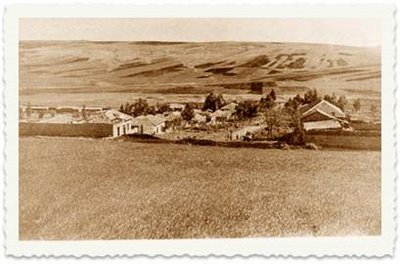 Yivne'el
Yivne'elYemenite guard in Ben-Shemen
The Wailing Wall
The Hot Springs of Tiberias
The Seven Mills of the Yarkon
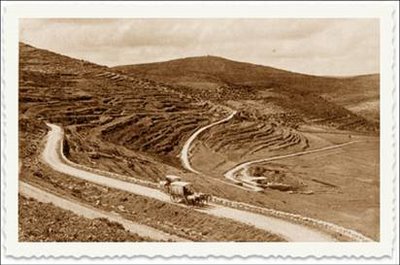 The Jerusalem-Nablus Road
The Jerusalem-Nablus Road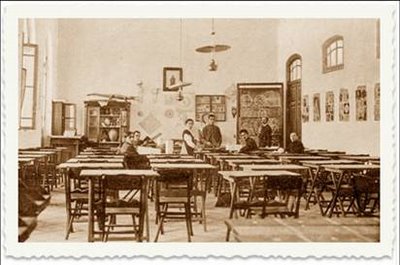 The Hebrew Gymansium High-School in Tel-Aviv
The Hebrew Gymansium High-School in Tel-Aviv
Tora Study in Meron
Metula
Maidens' Farm (Sea of Galilee)
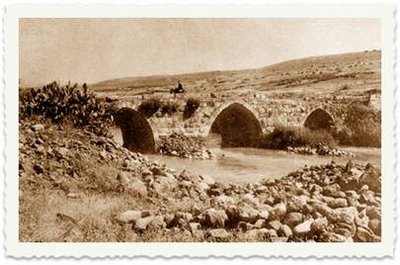
Haifa Bay Stagecoach
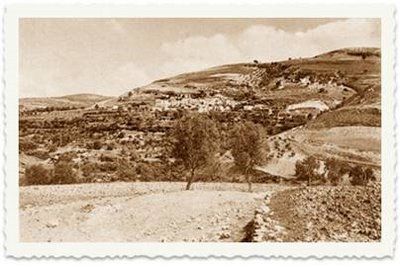 En Zeitim (Olive Grove), Sefad
En Zeitim (Olive Grove), Sefad
Now, what I would like to know is - what exactly was it that the Arabs had and the Jews took from them? Was it not a wasteland, a desert made to bloom and blossom by the incoming Jews?
In 1799, Palestine was still so much in need of people that Napoleon Bonaparte championed a full-scale return of Jews.
"The country is in a considerable degree empty of inhabitants and therefore its greatest need is of a body of population." [British consul in 1857]
"There is not a solitary village throughout its whole extent [valley of Jezreel] -- not for 30 miles in either direction... One may ride ten miles hereabouts and not see ten human beings. ... For the sort of solitude to make one dreary, come to Galilee ... Nazareth is forlorn ... Jericho lies a moldering ruin ... Bethlehem and Bethany, in their poverty and humiliation... untenanted by any living creature... A desolate country whose soil is rich enough, but is given over wholly to weeds ... a silent, mournful expanse ... a desolation ... We never saw a human being on the whole route ... Hardly a tree or shrub anywhere. Even the olive tree and the cactus, those fast friends of a worthless soil had almost deserted the country ... Of all the lands there are for dismal scenery Palestine must be the prince. The hills barren and dull, the valleys unsightly deserts [inhabited by] swarms of beggars with ghastly sores and malformations. Palestine sits in sackcloth and ashes ... desolate and unlovely ... "[Mark Twain, The Innocents Abroad, 1867]
"Left to themselves, the Arabs of Palestine would not in a thousand years have taken effective steps towards the irrigation and electrification of Palestine. They would have been quite content to dwell - a handful of philosophic people- in wasted sun-drenched plains, letting the waters of the Jordan flow unbridled and unharnessed into the Dead Sea." [Winston Churchill, British Colonial Secretary, during his visit to the Middle East in the winter of 1920-1921]
"Fuel-power stations for the generation of electrical light and energy have been established at Haifa and Tiberias by the [Jewish] Palestine Electric Corporation, Limited. This increase in commercial activity, in building enterprise and new industrial developments is due almost entirely to Jewish capital and the entry during the year of an immigrant class with money to invest." [British High Commissioner report to the League of Nations on the Administration of Palestine and Transjordan for the year 1925].
"I regard the Jewish Colonies in Palestine as the most important and valuable influence now being exerted in this country for the improvement of agriculture and the creation of a stable and enlightened rural life. The creation of new and larger settlements will stabilize social and political conditions in the country, as well as give a needed support to the present rapid development of cities and towns in Palestine. Apart from any question of religious faith or aspiration the movement to create rural Jewish settlements is deserving of world wide encouragement and support." [Elwood Mead, Memorandum to Zionist leaders].
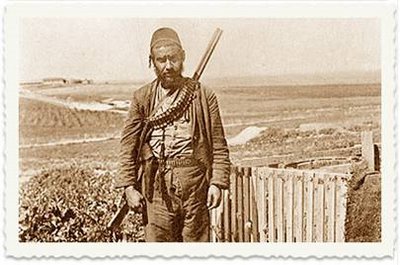
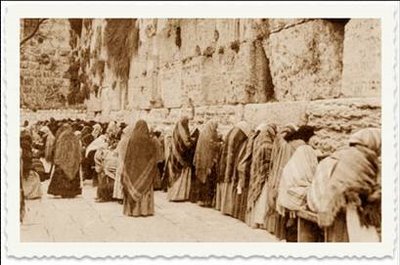



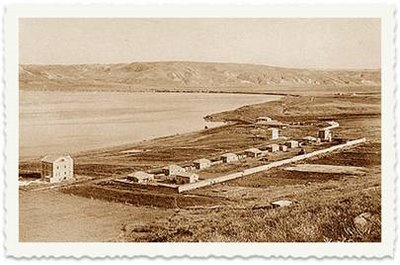
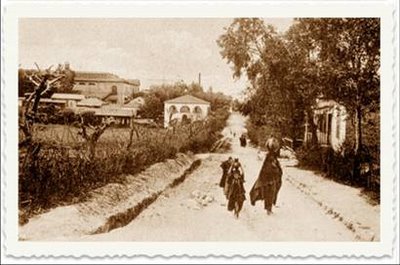
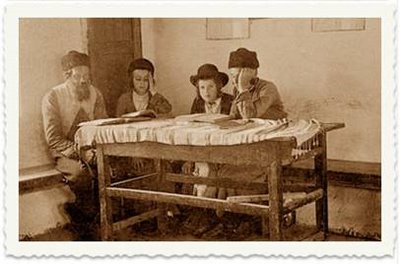
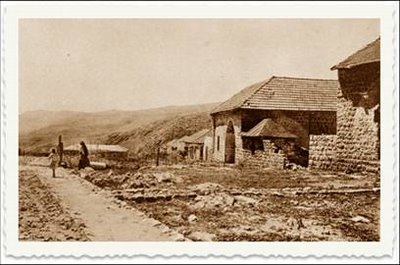
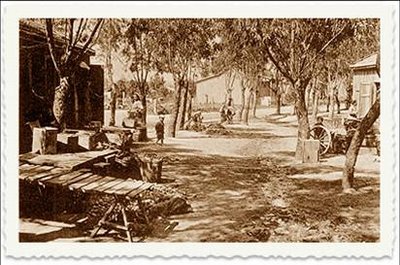
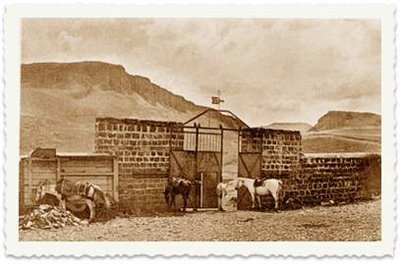


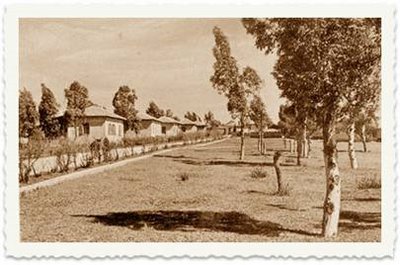
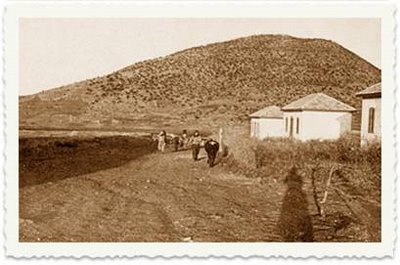








No comments:
Post a Comment